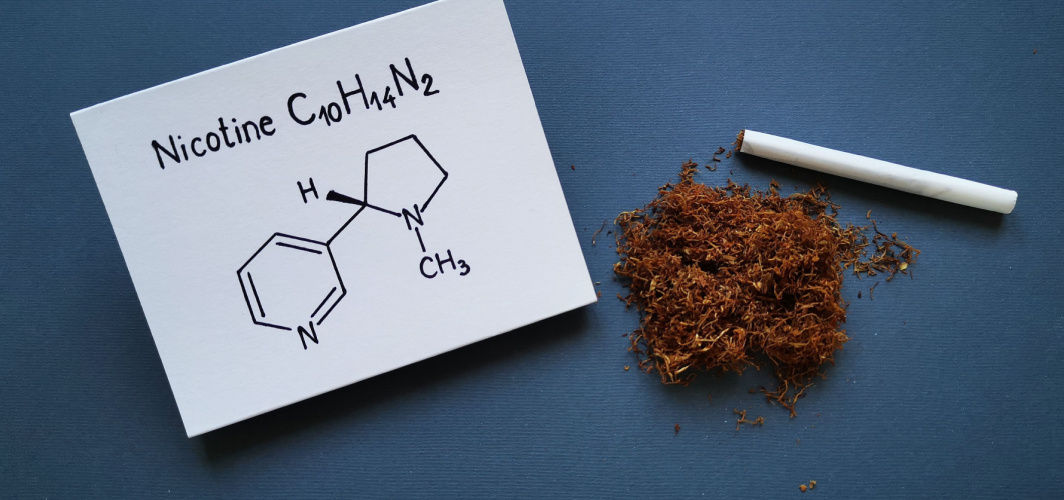Diabetes Management
Does Nicotine Increase Blood Sugar?
2 min read
By Apollo 24|7, Published on - 17 November 2023, Updated on - 22 February 2024
Share this article
0
0 like

Nicotine, the primary addictive component of tobacco products, has long been associated with a range of health concerns, including its impact on blood sugar levels. Understanding how nicotine affects blood sugar regulation is essential, especially for individuals with diabetes or those at risk of developing the condition.
Nicotine's Effects on Blood Sugar
Immediate Blood Sugar Elevation: Nicotine stimulates the release of adrenaline and noradrenaline, two "fight or flight" hormones, from the adrenal glands. This hormone release triggers the liver to release glucose into the bloodstream. The surge in glucose levels is part of the body's physiological response to stress, preparing it for action. For people without diabetes, this rise in blood sugar is usually well-managed by the body's insulin response. However, for those with diabetes or prediabetes, it can be problematic.
Insulin Resistance: Prolonged nicotine exposure has been linked to insulin resistance, a condition where cells do not effectively respond to insulin. This can result in elevated blood sugar levels, as insulin is less able to facilitate the uptake of glucose into cells for energy. Insulin resistance is a hallmark of type 2 diabetes and is also associated with prediabetes.
Appetite Suppression: Nicotine is an appetite suppressant, which can lead to reduced food intake. While this might seem beneficial for weight management, it can disrupt blood sugar balance, particularly for individuals taking medications or insulin to manage their diabetes. The lack of food intake can lead to hypoglycemia, or low blood sugar, especially if medication or insulin doses are not adjusted accordingly.
Increased Heart Rate and Blood Pressure: Nicotine's stimulatory effects on the heart and blood vessels can lead to increased heart rate and blood pressure. This can trigger the release of stress hormones, including cortisol and glucagon, which can elevate blood sugar levels.
Nicotine Withdrawal and Blood Sugar: When individuals quit smoking or using nicotine-containing products, they often experience nicotine withdrawal symptoms, which can include increased appetite and changes in eating patterns. This may influence blood sugar levels and could affect diabetes management.
Individual Variability: It's essential to note that the impact of nicotine on blood sugar can vary from person to person. Factors like the individual's overall health, the presence of diabetes or prediabetes, and the specific source and amount of nicotine exposure can all influence how nicotine affects blood sugar levels.
Conclusion
Nicotine can influence blood sugar levels through various mechanisms, including immediate blood sugar elevation, insulin resistance, appetite suppression, increased heart rate and blood pressure, and withdrawal effects when quitting nicotine. For individuals with diabetes, it's crucial to quit smoking and manage nicotine exposure to support overall health and blood sugar control. Seeking guidance from healthcare professionals can be essential in this process.
Diabetes Management
Consult Top Diabetologists
View AllLeave Comment
Recommended for you
.jpg?tr=q-80)
Diabetes Management
How to maintain and manage carbohydrate intake if you are diabetic?
Living with diabetes doesn't mean you can't enjoy your favourite meals. It's all about balancing what you eat. This blog will guide you on how to manage your carbohydrate intake, emphasising the importance of understanding carbohydrates and their types - simple and complex. We'll also discuss how portion control and incorporating healthy carbohydrate sources into your diet can help manage your blood sugar effectively. Read on to equip yourself with knowledge for a healthier, more balanced life. Let's tackle diabetes together!

Diabetes Management
Diabetes And Stroke: Are They Related?
Diabetes and stroke are closely related. Poorly controlled diabetes can lead to inflammation, high blood pressure and increased cholesterol that can damage blood vessels, increasing the risk of stroke. Persistent damage can cause plaque buildup in artery walls, narrowing the blood vessels and impeding blood and oxygen flow to the brain.
.jpg?tr=q-80)
Diabetes Management
Diabetes Management: Your Guide to Selecting a Blood Glucose Meter
Choosing the right blood glucose meter plays a crucial role in managing diabetes effectively. Consider factors like accuracy, ease of use, blood sample size, test speed, memory, app connectivity, and cost. The Apollo Smart Glucometer, for instance, not only provides accurate readings but also offers real-time glucose data, personalised advice and unlimited access to the Diabetes Self-Management tool, facilitating effective diabetes management.
Subscribe
Sign up for our free Health Library Daily Newsletter
Get doctor-approved health tips, news, and more.
Visual Stories

8 Fruits That are Incredibly Healthy for Diabetes
Tap to continue exploring
Recommended for you
.jpg?tr=q-80)
Diabetes Management
How to maintain and manage carbohydrate intake if you are diabetic?
Living with diabetes doesn't mean you can't enjoy your favourite meals. It's all about balancing what you eat. This blog will guide you on how to manage your carbohydrate intake, emphasising the importance of understanding carbohydrates and their types - simple and complex. We'll also discuss how portion control and incorporating healthy carbohydrate sources into your diet can help manage your blood sugar effectively. Read on to equip yourself with knowledge for a healthier, more balanced life. Let's tackle diabetes together!

Diabetes Management
Diabetes And Stroke: Are They Related?
Diabetes and stroke are closely related. Poorly controlled diabetes can lead to inflammation, high blood pressure and increased cholesterol that can damage blood vessels, increasing the risk of stroke. Persistent damage can cause plaque buildup in artery walls, narrowing the blood vessels and impeding blood and oxygen flow to the brain.
.jpg?tr=q-80)
Diabetes Management
Diabetes Management: Your Guide to Selecting a Blood Glucose Meter
Choosing the right blood glucose meter plays a crucial role in managing diabetes effectively. Consider factors like accuracy, ease of use, blood sample size, test speed, memory, app connectivity, and cost. The Apollo Smart Glucometer, for instance, not only provides accurate readings but also offers real-time glucose data, personalised advice and unlimited access to the Diabetes Self-Management tool, facilitating effective diabetes management.



